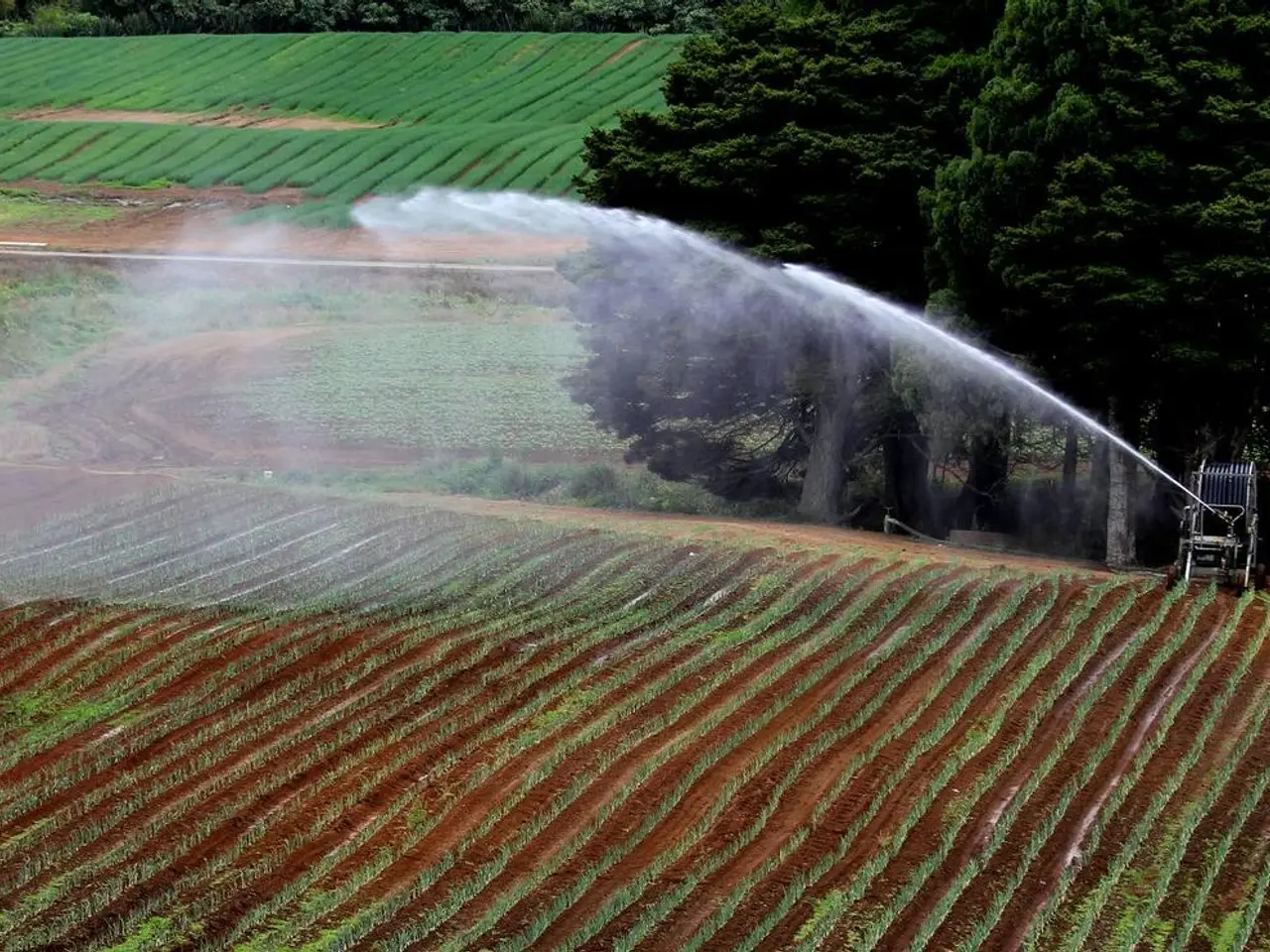Farming Profits: An Insight into the Earnings of Farmers
Agriculture in North Rhine-Westphalia Embraces Technology and Renewable Energy
Agricultural operations in North Rhine-Westphalia (NRW) have undergone a significant transformation in recent years, with a growing emphasis on technology and renewable energy. According to data from agricultural censuses, conducted approximately every ten years, 48.6% of agricultural operations in NRW had additional sources of income in 2020, and 26.2% earned income from renewable energy production.
In 2010, the figures were different, with 27.8% of agricultural operations having additional sources of income, and only 10.5% earning income from renewable energy production. This shift reflects a broader trend: increasing technology adoption (including precision and telematics farming) and growing emphasis on renewable energy.
One of the key areas of growth has been in the testing and adoption of compact and electric machinery. NRW's proximity to major agricultural machinery manufacturers and emphasis on innovation have made it an ideal testing ground for new technologies in urban and semi-urban farming environments. This can generate additional income through partnerships or pilot projects with manufacturers.
Another significant area of growth has been in renewable fuels and bioenergy production. Companies in NRW have entered strategic agreements to supply and develop renewable fuels, benefiting agricultural operations engaging in or supporting biomass feedstock production or bioenergy crops. For example, e-methanol production, supported by regional investments and EU funding, has seen growth in NRW.
Traditional secondary activities like leasing machinery, organic product processing, or agri-tourism may also play roles but are less specifically documented for NRW in this period. However, they are growing alongside climate adaptation strategies, as more operators include renewable energies and data-driven farming services in their diversification strategies.
The results of these agricultural censuses can help map existing structures and identify trends and developments. The data serves as a valuable information source for politics, business, and science, providing insights into the changing landscape of agriculture in NRW.
Subscribing to the newsletter provides in-depth information on societal developments, culinary arts, art, and culture in Neuss. For more information on the results of the agricultural censuses in NRW, visit the joint statistics portal (link provided).
In summary, the agricultural operations in NRW have shifted from mainly equipment-related and traditional diversified farm income towards a stronger role for energy production (biofuels) and high-tech agricultural services. This reflects a diversification strategy increasingly aligned with technological innovation and sustainability priorities in North Rhine-Westphalia agriculture.
In the evolving landscape of North Rhine-Westphalia agriculture, a growing number of agricultural businesses are venturing into renewable energy finance, particularly in renewable fuel and bioenergy production.This trend is evident as more companies in NRW are entering strategic agreements to supply and develop renewable fuels, which benefits agricultural operations engaged in biomass feedstock production or bioenergy crops.
The increase in technology adoption in agriculture is also notable, with a rise in the testing and adoption of compact and electric machinery. This shift towards high-tech agricultural equipment is significant, generating additional income through partnerships or pilot projects with manufacturers.
Moreover, the renewable energy industry in NRW extends beyond agriculture, with a growing emphasis on e-methanol production, supported by regional investments and EU funding. This highlights the broader trend of increased technology adoption and a strong commitment towards renewable energy in various sectors, including the business sphere.




